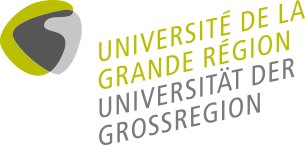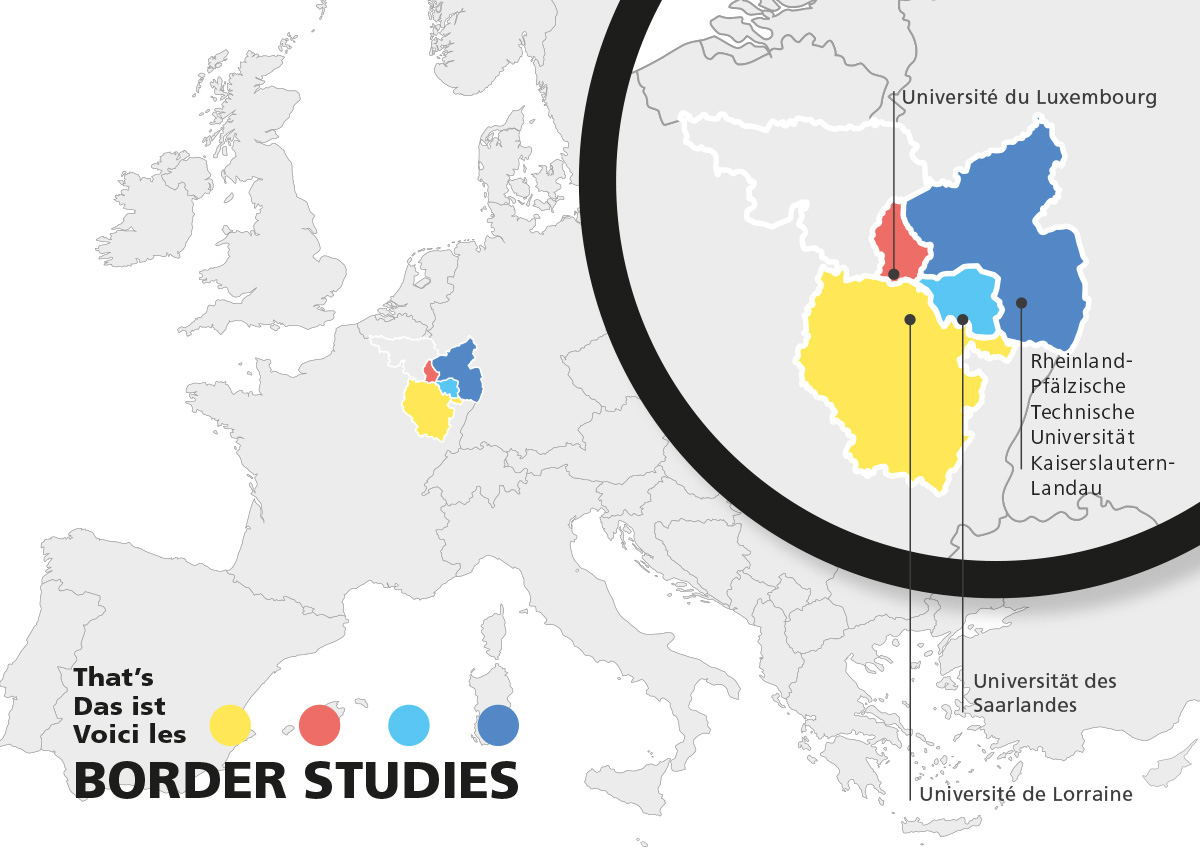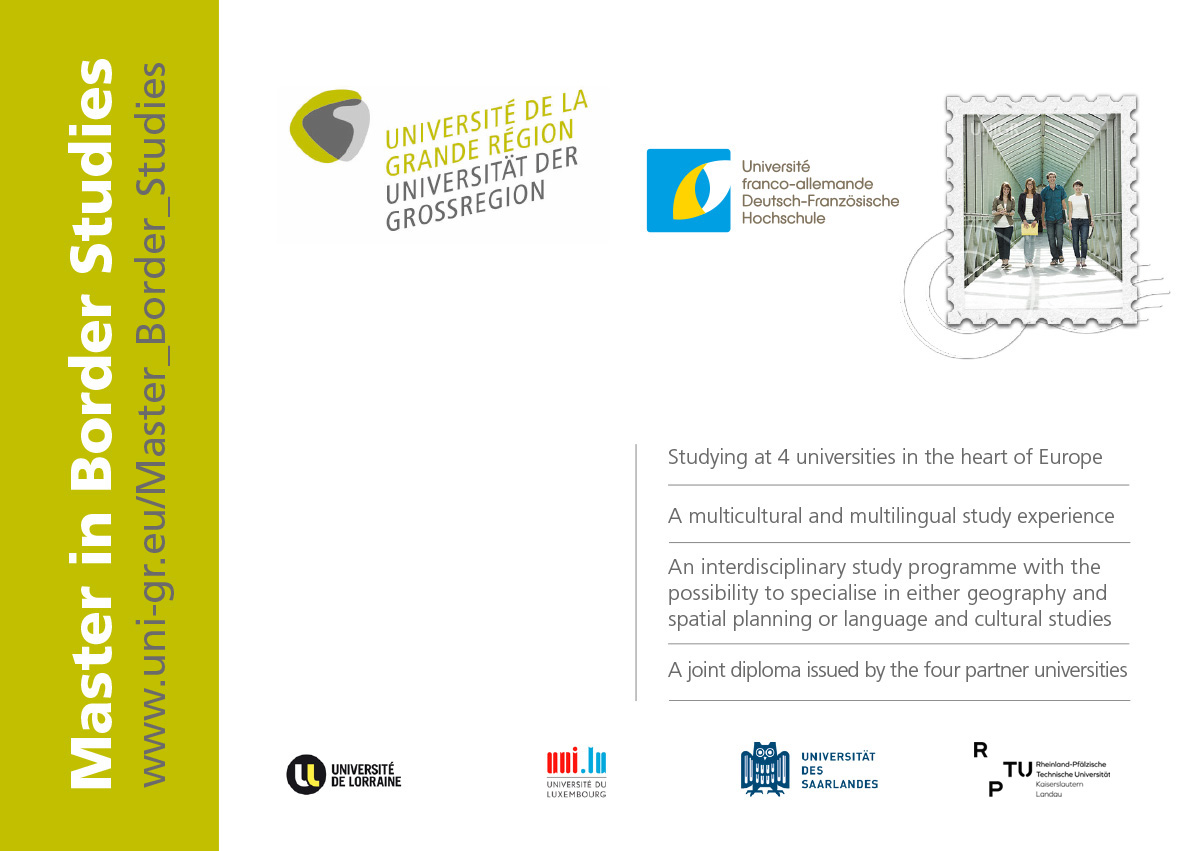
Border Studies - a unique cross-border study programme
Our Master in Border Studies is a two-year joint trinational study programme, which addresses the complex economic, political, social and cultural issues of borders and of border regions in Europe and beyond.
The study programme is designed for students with different disciplinary backgrounds who wish to work in intercultural and cross-border settings.
The multilingual study programme is located in three countries at four different universities:
- University of Luxembourg (LUX)
- Université de Lorraine (FR)
- Saarland University (DE)
- University of Kaiserslautern-Landau (RPTU) (DE)
Courses in this Master in Border Studies are taught in German, French and English.
Discover the study programme in our video!
Live Chat on April 29, 2025 - Don't miss out!
Our Live Chat is the perfect opportunity for you to get to know our Master in Border Studies and to ask your questions!
Join our live chat and learn more about the study plan, the content of courses, practical questions and the application procedure. Teachers from all partner universities will answer your questions in English, French and German.
Presentation of our Study program and Live Chat
Tuesday, April 29, 2025
5 p.m., MS Teams
Curious?
Thanks to the new videos, dive into the world of the Master in Border Studies and get a unique glimpse of the faculty and the vibrant student life that awaits you.
Watch them now and get ready for the live chat!
Border Studies: Addressing the challenges of the 21st century
In the wake of the abolition of regular border controls in Europe and the fall of the iron curtain, the field of Border Studies has opened up new objects of research and has experienced a noticeable development boost. At the same time European societies experience the challenges of new closing of borders. The Covid-19 pandemic made it clear that open borders are in fact not a given and also demonstrated the societal relevance of borders. Specialists who are familiar with border-related challenges and the specificities of border regions are therefore urgently needed.
The Master in Border Studies provides students with the major concepts and analytical tools to understand the social, cultural, political and economic challenges of border regions and cross-border cooperations. The program’s interdisciplinary approach enables graduates to analyze complex border (area) problems from different academic perspectives. Students gain theoretical knowledge of border problems, border cultures, border literatures and constructions of “otherness”. At the same time, they develop the relevant methodological and practical skills through project studies and internships.
Thereby students acquire the needed skills to play a crucial part in the increasing and becoming more complex discussions on national and European identities, worldwide mobilities, migration, cultural diversity, citizenship and cross-border cooperation. The career paths of our graduates prove that this degree quickly opens up a variety of highly-skilled positions.
Students may specialise in one of the two tracks:
- spatial track including geography and spatial planning;
- language and cultural track including cultural studies, literature, linguistics, intercultural communication.
Why study Border Studies at the University of the Greater Region?
- Our multilingual courses are taught at the four partner universities in the Greater Region. All of the campuses are so close together that our students can commute between them. During their studies they thus get a taste of what life is like living in one of the most intertwined border regions of Europe.
- Students benefit from a multicultural and multilingual study experience which opens manifold future professional career opportunities.
- The interdisciplinary study program is based on close and long-standing cooperation between the partner universities and the extensive research of the lecturers at the interdisciplinary center of expertise UniGR-Center for Border Studies. This gives students insights into innovative research activities and academic events in the field of border studies.
- In the compulsory internship, our students can apply their acquired knowledge in practice, learn more about possible professional fields and form valuable relationships with potential future employers.
- Our students study in a cross-border cohort with a common curriculum and joint study regulations. Successful students are awarded a joint diploma issued by the four universities and the master’s degrees of the four partner universities.
- The program is capped at 20 students per year, which, together with the cross-university study coordination, ensure that each student receives personalized attention and advisory services.
- The programme is supported by the Université franco-allemande | Deutsch-Französische Hochschule. As a consequence, students can benefit from mobility grants as well as from the workshops and the support of the Franco-German University.
This is our Border Studies
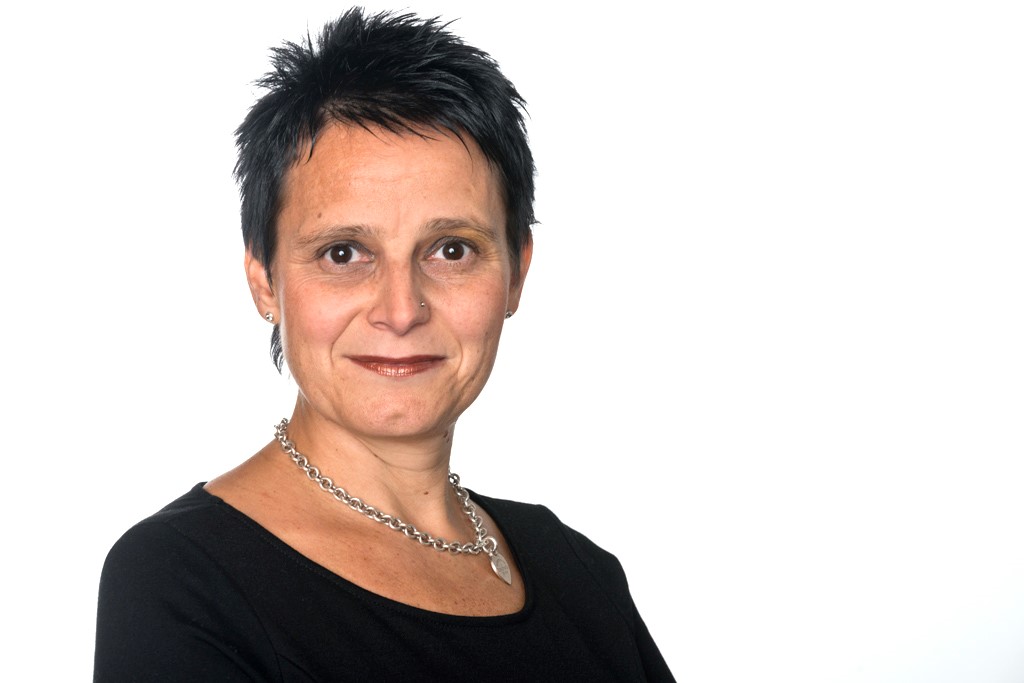 Prof. Astrid M. Fellner (Nordamerikanische Literatur- und Kulturwissenschaften, Universität des Saarlandes)
Prof. Astrid M. Fellner (Nordamerikanische Literatur- und Kulturwissenschaften, Universität des Saarlandes)
"My interest involves comparative border studies, comparing U.S.-Mexican and the U.S-Canadian border cultures (especially border literatures) with other border cultures. I’m also interested in border theory, ways of conceiving of the border and theorizing border cultures."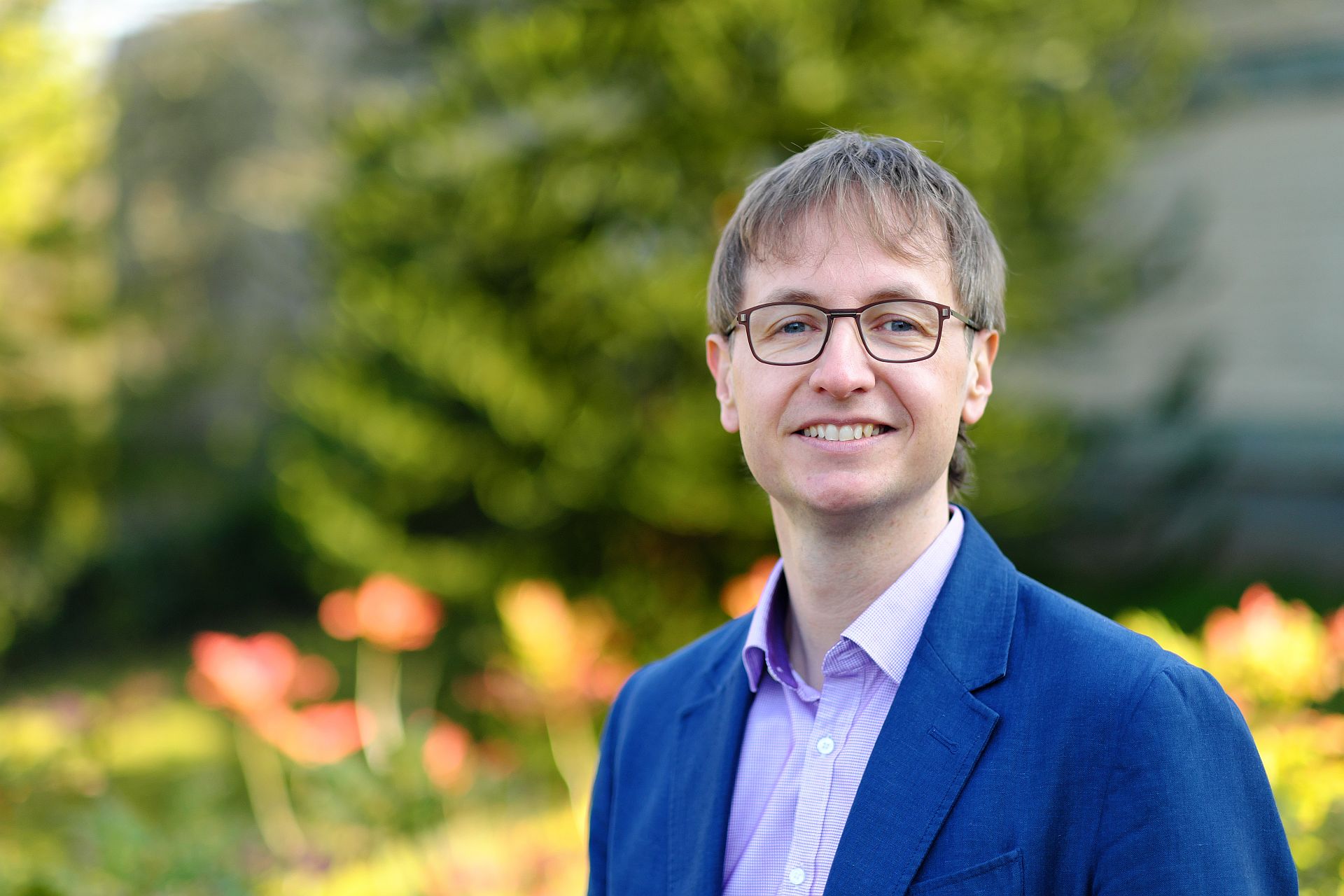 Jun.-Prof. Dr. Florian Weber (Europastudien| Westeuropa und Grenzräume, Universität des Saarlandes)
Jun.-Prof. Dr. Florian Weber (Europastudien| Westeuropa und Grenzräume, Universität des Saarlandes)
"Border Studies bedeuten für mich eine Auseinandersetzung mit vielfältigen Grenzziehungsprozessen, mit In- und Exklusionsmechanismen. Ich interessiere mich dabei gerade für urban boundaries, also Grenzen im Stadtgesellschaftskontext."
© Thorsten Mohr, UdS, 2021
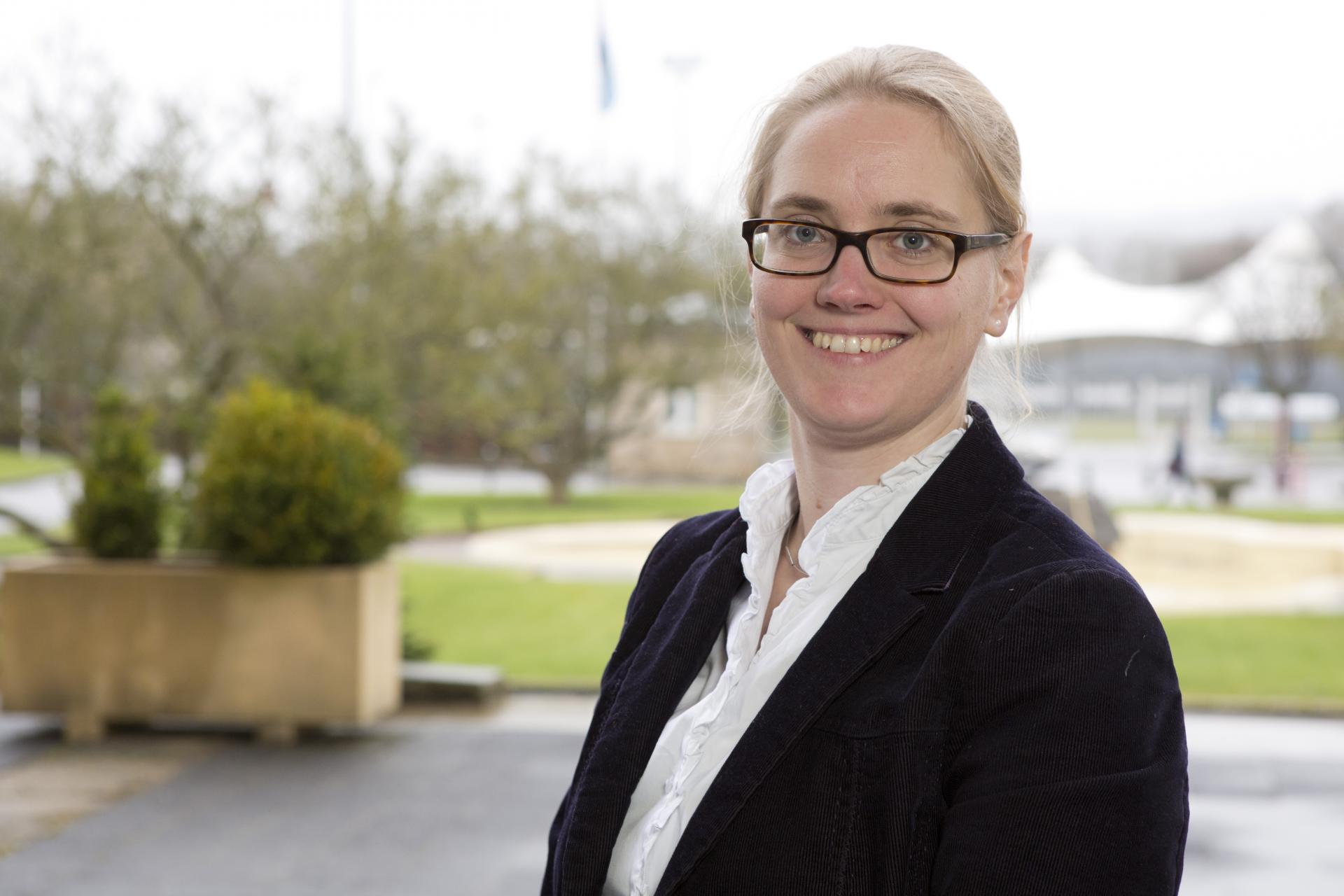 Assoc. Prof. Dr. Birte Nienaber (Political Geography, University of Luxembourg)
Assoc. Prof. Dr. Birte Nienaber (Political Geography, University of Luxembourg)
"I am teaching the introduction to Border Studies from a geographical point of view since 2013 and each year something new comes up making it really interesting and highly topical. My main research foci are migration and bordering processes as well as cross-border spatial planning.“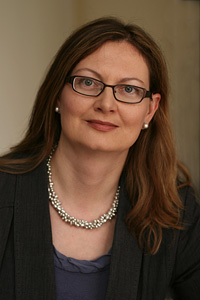 Univ. Prof. Dr.-Ing. habil. Karina Pallagst (Internationale Planungssysteme, RPTU Kaiserslautern-Landau)
Univ. Prof. Dr.-Ing. habil. Karina Pallagst (Internationale Planungssysteme, RPTU Kaiserslautern-Landau)
"Border Studies bedeutet für mich, in der Raumplanung unterschiedliche Planungstraditionen und Planungskulturen miteinander zu verbinden, die Kenntnisse über Planungsinstrumente im grenzüberschreitenden Kontext zu verbessern und die Chance zu nutzen, Partnerschaften und Netzwerke aufzubauen und gemeinsame Konzepte räumlicher Entwicklung zu schaffen."
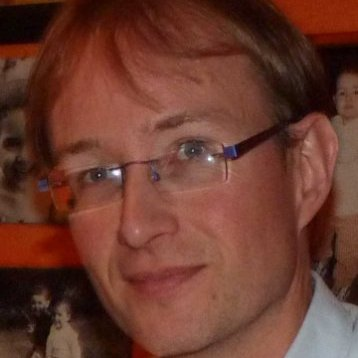 Prof. Grégory Hamez (Géographie, Université de Lorraine)
Prof. Grégory Hamez (Géographie, Université de Lorraine)
"Ce que je trouve passionnant dans les Border Studies, c'est que l'étude des frontières est très révélatrice de l'évolution des sociétés, de notre identité... et que pour cela il faut entrer en contact, d'un point de vue interdisciplinaire, international et interculturel. Mes recherches portent sur les espaces transfrontaliers sous l'angle de la géographie et de l'aménagement, dans l'Union européenne."
Structure of the Programme
The curriculum covers a full time two-year programme (120 ECTS)
Semester 1
The programme starts with a two-day introductory seminar organized by all partner universities and a two-day field trip to learn more about the Greater Region. Students spend the first semester at the University of Luxembourg and at the Université de Lorraine. They gain knowledge of central concepts and research methods in the study of border regions and are introduced to current debates on border issues from a spatial/geographical and a linguistic, cultural, and sociological perspective.
Semester 2
Students spend the second semester mainly at the Université de Lorraine as well as at the University of Luxembourg. They further specialize their studies by choosing between one of the two tracks of the programme:
- spatial studies
- language and cultural studies
Each track consists of one module (12 ECTS) and an elective module selected from the other
track (6 ECTS). Students have to accomplish a mandatory internship during the second semester.
Semester 3
Students spend the third semester at Saarland University and the RPTU in Kaiserslautern. Students participate in a seven-day excursion and they work on a case study in cross-border relationships and cooperation. Students deepen their knowledge according to the chosen specialization in the second semester.
Semester 4
The last semester is dedicated to the final master’s thesis. At the beginning and the end of the fourth semester a colloquium workshop takes place in which students present and discuss their master’s thesis.
The master’s programme is based on the following joint documents:
To see the module plan, click here (1,45 MB-PDF-EN).
To see the joint study regulations (module description and conversion tables included), click here (6,58 MB-PDF-EN).
To see the composition of the steering board, click here (0,11 MB-PDF-EN).
To see the regulation of repetition and compensation, click here (0,14 MB-PDF-EN).
News
Please find all news about our programme, informations about interesting events and relevant job offers for students and graduates on this website.
Practical information
During your studies you will get to know the four partner universities – below you will find practical information about transportation, accommodation, financial support and other forms of assistance. Our enrolled students have access to all the information and materials they need for their studies via our joint online platform.
Accommodation
First year of study: The timetables for semesters 1 through 3 are organized so that courses are only taught at two days in Metz and on two days in Esch-Belval (Luxembourg). We recommend looking for accommodation in Metz or Esch-Belval so that you only have to commute twice a week.
At the University of Luxembourg, SEVE Housing is your contact point for an accommodation in one of the university's halls of residence and can also share useful information for other housing options. L’Université de Lorraine offers support finding an accommodation here. Tips from a student on finding accommodation in Metz can be found here (0,10 MB-PDF-DE).
Costs for accommodation are a bit higher in Luxembourg than in Metz. Further information on the cost of living for students in Luxembourg can be found here and for Metz here.
Second year of study: In semester 3 you may choose Saarbrücken or Kaiserslautern as a place to live. Which city is the best for you depends on your specialization track and the courses you choose. In most years, courses take place in Kaiserslautern on Monday and Tuesday and in Saarbrücken on the other days.
In Germany many students live in private apartments and/or with roommates. Here (0,26 MB-PDF-DE) are some tips on how to find a place to live in Saarbrücken. Saarland Student Services (Studierendenwerk) offers some rooms in student residence halls. We recommend applying early. Some rooms are reserved for students from Luxembourg. Please contact the Ministère de l'Enseignement supérieur et de la Recherche logement@mesr.etat.lu for more information. There are also some student residence halls in Kaiserslautern. Further information on the cost of living for students in Germany can be found here.
In semester 4 you will write your Master Thesis, and you are only required to take part in two one-day colloquium workshops. Details of the supervision of your Master Thesis are to be discussed with your two advisors (from different partner universities). Thus, during this time you are free to live wherever you choose.
Mobility
The timetables for semesters 1 through 3 are organized so that courses are only taught at one university per day to minimize the number of journeys.
First year of study: There are several train and bus connections between the campus Metz and the campus in Esch-Belval. Here you find more information about how to access the Belval-Campus and Campus Université de Lorraine à Metz. In the first semester, one course at ULor with 4 sessions will take place at Nancy Campus. In the whole Grand Duchy of Luxembourg, public transport is free (except in the 1st class by train). There is no student transportation pass in Metz. Information about busses, trains and tickets in Metz can be found via this link.
Second year of study: There’s a train and bus connection between Saarbrücken and Kaiserslautern. Saarbrücken is also connected to Metz via train and the city of Luxembourg via bus. For students who have chosen Saarland University as their home university, the Deutschlandsemesterticket is included in the fees they have to pay Other students can purchase it if required.
Funding
Support from Université Franco-Allemand | Deutsch-Französischen Hochschule
The Master Border Studies programme benefits from the recognition and the support of the Université franco-allemande | Deutsch-Französische Hochschule.
- During your period abroad you benefit from a transportation allowance of 350€/month for 10-12 months (depending on the country in which your internship takes place )
- You receive a UFA | DFH certificate after graduation
- You benefit from the network of UFA | DFH and its numerous offers (language courses, intercultural application training, …)
To take advantage of the UFA | DFH benefits you need to enroll every year at UFA | DFH by September 30th for the upcoming academic year. Enrollment is free of charge. Please find more information here.
Additional funding opportunities
- BAföG (Germany)
- Caisse d’allocations familiales CAF (France): housing aid
- Ministère de l'Enseignement supérieur et de la Recherche (Luxembourg)
- Scholarships
Enrolment and advantages
You can apply to the university of your choice (Université de Lorraine, University of Luxemburg or Saarland University), which, if you are admitted, will become your home university. You enroll in the partner universities using a simplified enrolment procedure. Enrollment fees and social security fees only have to be paid at your home university, but you are free to use the facilities of all four partner universities (language courses, libraries, sports programme).
Non-EU Students
We strongly recommend applying early so that visa matters can be settled by the start of the semester. Please note the separate application deadlines at the University of Luxembourg and the separate application procedure at Université de Lorraine!
Support and assistance in preparation of your stay (how to get a visa, how to find accommodation and questions concerning health insurance) are offered to international students by the following service centers:
- Saarland University: Welcome Center, visa information for candidates from non-EU countries
- University of Luxembourg: Service des Études et de la Vie Étudiante
- Université de Lorraine: Le Bureau d'accueil
Semester Dates
The courses of the Master in Border Studies in semester 1 start mid-September. The introductory seminar and field trip take place before. Please note the current dates for this year (see application procedure and admission).
The partner universities follow different academic calendars. Please find more information about the beginning and the end of semesters at the partner universities here:
Academic Calendar Université du Luxembourg
Calendrier Université de Lorraine
Semester dates Saarland University
Compulsory Internship
The programme includes a 8 to 12-week compulsory internship in the country of your choice. We support students in their search for an internship. If you complete your internship in the partner country, you will receive the DFH mobility allowance during the internship period (up to a maximum of 2 months).
Career opportunities
The Master in Border Studies prepares for a career in cross-border and intercultural working settings, especially in border regions in Europe (such as the Greater Region) and beyond. Whether in public administration (e.g. cross-border regional and spatial planning, cross-border cultural management, cross-border regional marketing), media, cultural and economic sectors; there’s a wide range of options!
The careers of our graduates show that they find attractive positions very quickly, sometimes directly after they finish the compulsory internship. Some examples from the Greater Region, the home countries and all over Europe are
- Cross-border cooperation projects (INTERREG and LEADER projects, for example regional development of rural areas or the development of cross-border education projects)
- Cross-border administration and associations like Eurodistricts, Interreg authorities, University of the Greater Region
- Higher educational institutions (supporting international students, international projects)
- National and regional ministries (Departments for Europe/Cross-border cooperation, Foreign Policy Department, Security Authorities)
- Diplomatic service
- Migration services
- Political education (fondations)
- Companies (international marketing)
- Journalism
- Academia and research (PhD)
In this video you get a picture of the career entry of some of our graduates and how the skills learned in the master help them in their working life.
Testimonies and Alumni
The classes of 2020 and 2021 created these videos capturing their experiences while studying:
Video about the graduation ceremony of the Master in Border Studies on
6 March 2020 in the Villa Europa in Saarbrücken:
Slide show about the graduation ceremony of the Master in Border Studies
on 6 March 2020 in the Villa Europa in Saarbrücken:
Discover other students' testimonies and a video about the programme in French and German.
At Saarland University, a Student Council founded itself for the MA Border Studies.
You can reach out to the representatives via email (
) and find news on their Instagram (@fsborderstudies_uds)
Additionally, an alumni association for the Master's programme is currently being founded. With the support of the DFH-UFA, a network for graduates is being set up so that they can continue to exchange ideas after graduation. Further information will follow.
Application procedure and admission
Admission requirements
Applicants must have a Bachelor’s degree or equivalent in the field of anthropology, cultural studies, geography, history, intercultural communication, law, linguistics, political science, sociology, spatial planning. Courses are taught in German, French and English. For all three languages the Common European Framework of Reference for Languages level of B2 is required. The burden of proof is on the student.
The programme is limited to 20 students. Selection is based on the application documents, which should include a motivation letter, a Curriculum Vitae, certificates and diplomas of previous studies and a proof of written and oral language skills in German, French and English. A joint selection committee of the partner universities will evaluate the application and select the future students.
We offer regularly Live Chats to present our study programme and to answer questions of interested candidates. Please find the upcoming dates on our news page
Application Procedure
Students apply to the university of their choice that in case of admission will be their home university. The RPTU Kaiserslautern cannot be selected as the home university. Please note the different application deadlines which are the result of different national regulations. The applications will be processed continuously by the selection committee and applicants will receive a response as quickly as possible. All applicants have the same chance of admission!
Université de Lorraine
| First application period | until 24/03/2025 |
| Second application period (if any places left) |
17/06-23/06.2025 |
Please submit your application via Monmaster if you choose Université Lorraine as your home university. Non-European students have to apply via Campus France. More information about the procedure can be found here. Please note that deadlines may differ.
University of Luxembourg
| Non-EU applicants | Registration deadline: 30/04/2025 | Deadline for submitting documents: 07/05/2025 |
| EU applicants | Registration deadline: 18/06/2025 | Deadline for submitting documents: 25/06/2025 |
To apply at the University of Luxembourg as home university, click here.
Universität des Saarlandes
| Application deadline | 25/06/2025 |
To apply at the Saarland University as home university, click here.
Important information for non-European students:
The Directive (EU) 2016/801 on the conditions of entry and residence of third-country nationals for the purpose of studies currently has to be implemented in the EU member states. Please check the latest information, e.g. about visa regulations and inscription fees, before choosing your home university. Please note that the regulations for students from non-EU countries may cause some restrictions in Luxembourg concerning students jobs, internships and moving to another country of the Greater Region. We recommend you to contact the Service des Etudes et de la Vie Etudiante (SEVE) in advance to check possible constraints.
Enrollment
After admission students fully enroll at their home university, where they pay the enrolment fees. The partner universities offer a short enrolment procedure. Please consider the relevant deadlines.
The programme starts in September. The introductory module consists of two compulsory courses: the introductory seminar (09/09/-10/09/2025) and the 2-day field trip (10/10-11/10/2025).
Contact
Université de Lorraine
Tel : +33 3 87 54 73 95
UFR SHS-Metz, Île du Saulcy,
CS60228, F-57045 Metz
University of Luxembourg
Prof. Dr. Birte Nienaber
Professor of Political Geography
Faculté des Lettres, des Sciences Humaines, des Arts et des Sciences de l'Education
Maison des Sciences Humaines
Tel.: +352 46 66 44 9318
11, Porte des Sciences
L-4366 Esch-sur-Alzette
Saarland University
Jun.-Prof. Dr. Florian Weber
Professur für Europastudien | Westeuropa und Grenzräume
Fachrichtung Gesellschaftswissenschaftliche Europaforschung
Tel.: +49 681 302-64220
florian.weber(at)uni-saarland.de
Campus C5 3
D-66123 Saarbrücken
Dr. Ines Funk
Wissenschaftliche Mitarbeiterin
Koordinatorin MA Border Studies
Fachrichtung Gesellschaftswissenschaftliche Europaforschung
Tel: +49 681 302 64201
ma_border_studies@uni-saarland.de
Campus C5 3
D-66123 Saarbrücken
Rheinland-Pfälzische Technische Universität Kaiserslautern-Landau
Prof. Dr. Karina Pallagst
Professorin für Internationale Planungssysteme
Fachbereich Raum- und Umweltplanung
Tel.: +49 631 205 5155
Pfaffenbergstraße 95
03-125
D-67663 Kaiserslautern
Click on the picture to download the postcard of the Master in Border Studies.


